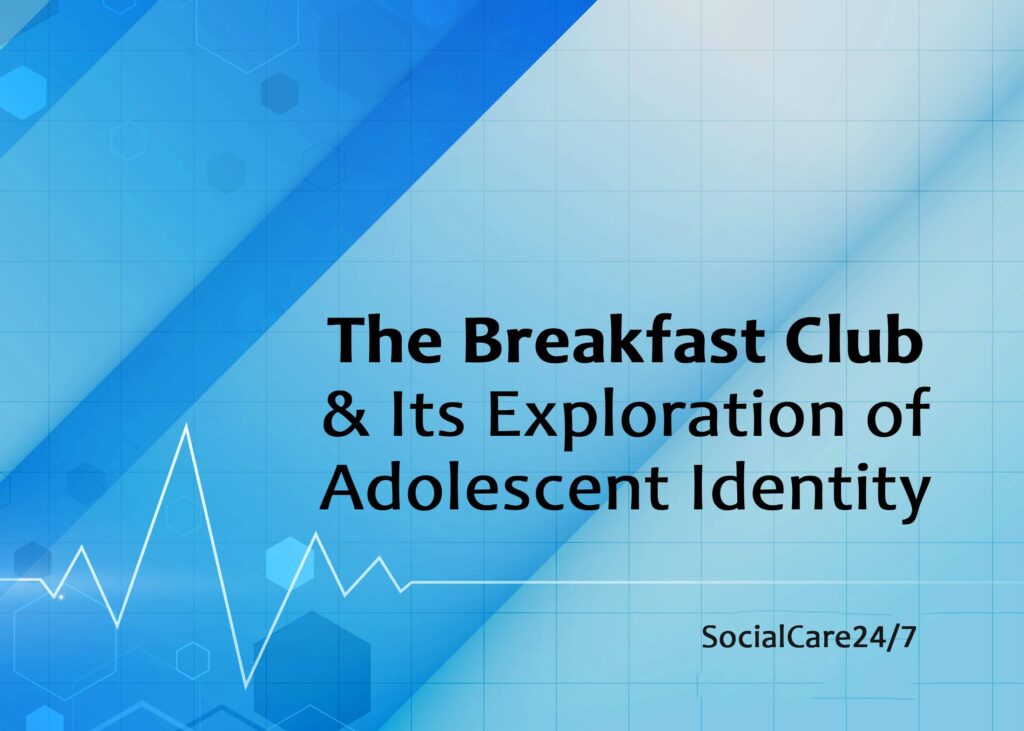The Breakfast Club is a coming-of-age film released in 1985 that explores the complexities of adolescence, identity, and interpersonal relationships. Directed by John Hughes, the story follows five high school students from different social cliques forced to spend a Saturday together in detention.
Initially strangers with little in common, they gradually reveal their struggles, fears, and dreams, challenging the stereotypes that define them. The film remains a timeless portrayal of teenage angst, self-discovery, and the shared humanity that transcends labels.
What Does Each Character Represent?
The Breakfast Club is renowned for its archetypal characters, each representing a high school stereotype. These roles serve as a framework for exploring deeper themes of individuality and connection:
- The Brain (Brian Johnson): A high-achieving, academically focused student who feels the pressure to succeed and fears failure.
- The Athlete (Andrew Clark): A star wrestler grappling with his father’s expectations and the burden of maintaining a tough, competitive persona.
- The Basket Case (Allison Reynolds): A socially awkward outcast who hides her vulnerability behind eccentric behavior.
- The Princess (Claire Standish): A popular girl whose seemingly perfect life masks insecurities and a desire for genuine connection.
- The Criminal (John Bender): A rebellious troublemaker who acts out due to a troubled home life and a need to protect himself emotionally.
These characters reflect the struggles many teenagers face as they navigate societal expectations, parental pressures, and their own developing identities.
How Does the Film Address Stereotypes?
One of the central themes of The Breakfast Club is the deconstruction of stereotypes. At the beginning of the film, each character conforms to a predefined label. However, as they share their personal stories and vulnerabilities, they realize that these labels fail to capture the complexity of their lives.
- Breaking Down Walls: Through honest conversations, the characters discover shared struggles, such as parental expectations, peer pressure, and feelings of inadequacy.
- Empathy and Understanding: The film highlights the importance of recognizing humanity and looking beyond the appearances of others.
- Challenging Social Norms: By the end of the movie, the characters begin to question the social hierarchies and cliques that separate them.
This transformation underscores the idea that individuals are more than the roles they are assigned and that empathy can bridge seemingly insurmountable divides.
What Lessons Does The Breakfast Club Offer?
The film offers several valuable lessons that resonate with audiences of all ages:
- Labels Don’t Define Us: People are multifaceted, and reducing them to stereotypes prevents meaningful understanding.
- Honesty Fosters Connection: Vulnerability and openness can break down barriers and build authentic relationships.
- Shared Experiences Unite Us: Despite different backgrounds, individuals often face similar struggles, creating opportunities for empathy.
- The Role of Authority: The film critiques the often dismissive attitude of authority figures toward teenagers, highlighting the need for better communication and understanding.
Why Does The Breakfast Club Remain Relevant?
Despite being nearly four decades old, The Breakfast Club continues to resonate because it captures universal themes of identity, self-acceptance, and belonging. Adolescence is a time of intense personal growth and questioning, and the film’s portrayal of these experiences feels authentic and relatable.
Additionally, its message about the dangers of stereotyping and the value of empathy remains timeless, encouraging viewers to look beyond surface judgments in their own lives.
Final Thoughts
The Breakfast Club is more than just a high school drama; it is a profound exploration of what it means to be human. By highlighting the fears, dreams, and complexities of its characters, the film challenges viewers to question societal norms, embrace vulnerability, and seek deeper connections with others.
The film’s iconic final line, “You see us as you want to see us,” serves as a poignant reminder to approach others with curiosity and compassion rather than preconceived notions. It’s this enduring message that solidifies The Breakfast Club as a cinematic classic and a touchstone for understanding the adolescent experience.



